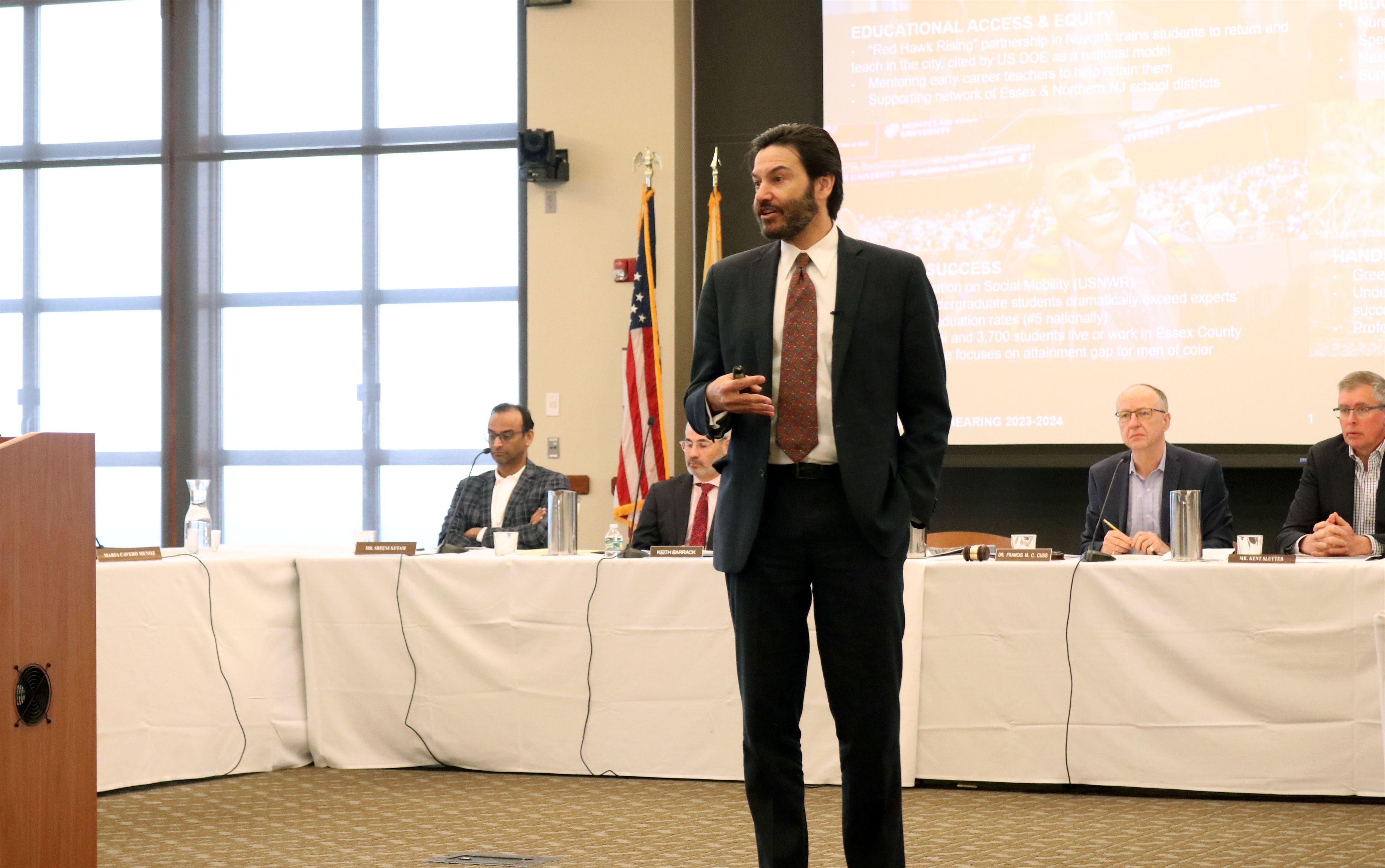Out-of-state students attending Montclair State University may face a possible increase in tuition if it is approved by the Board of Trustees. Montclair State President Jonathan Koppell explained that for undergraduate out-of-state tuition, the cost could rise three to eight percent.
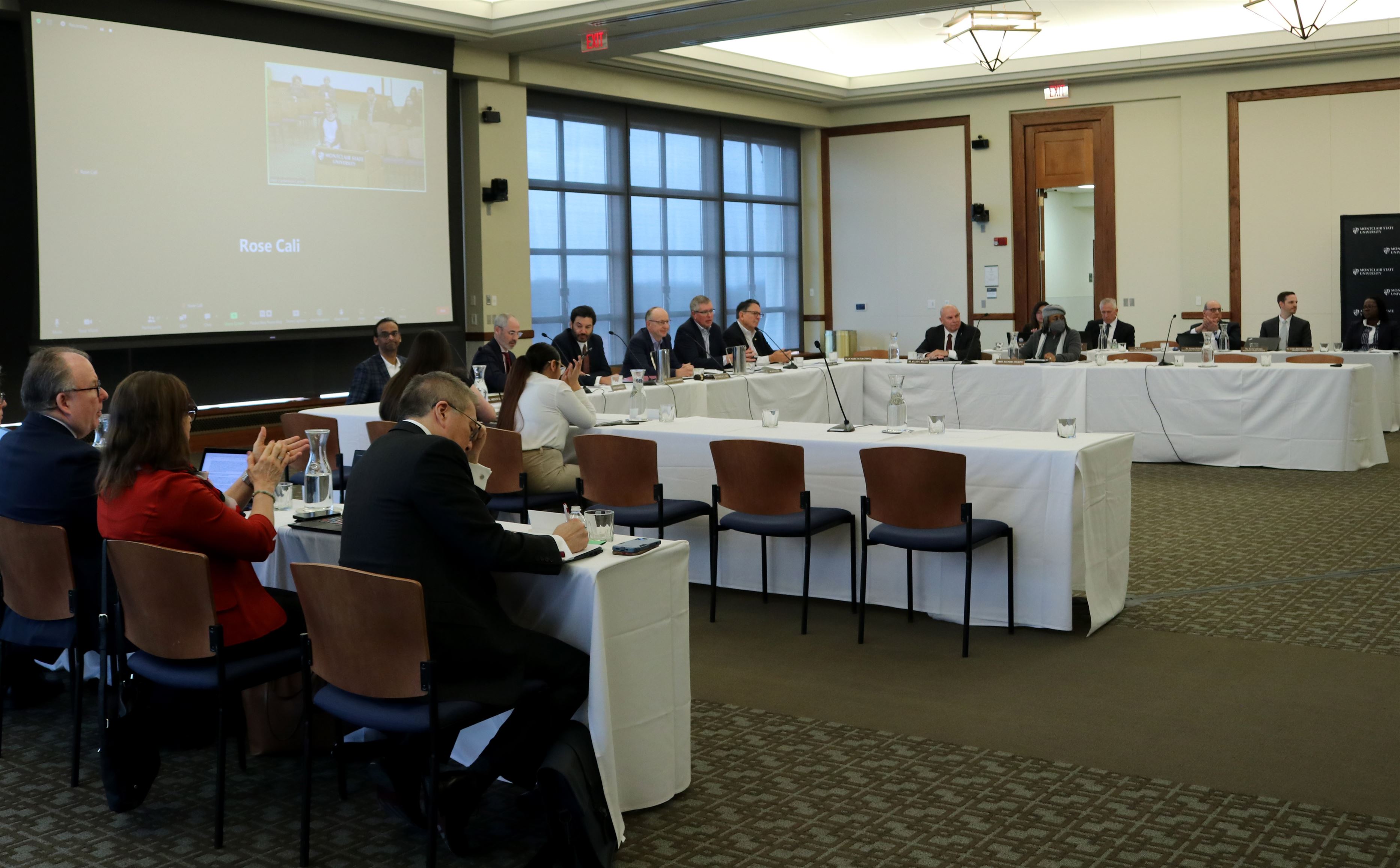
Montclair State University's Board of Trustees listens to the concerns of a student.
Kamil Santana | The Montclarion
“I’m looking for a larger potential change,” Koppell said. “We are looking for larger possible changes in terms of the non-resident tuition as opposed to the in-state.”
He said it will “[reflect] a strategic opportunity for the university.”
At this year’s tuition hearing on Friday, March 31, numbers, graphs, charts and percentages faced the public at the Conference Center in University Hall. Koppell began the hearing with a financial breakdown of Montclair State’s budget, tuition, expenses and aid.
Koppell emphasized the importance of students’ attendance at tuition hearings before beginning his presentation. He said presenting it would help students provide feedback to the Board of Trustees.
“So the reality is that we have to run a financial enterprise and this is a critical part of that, where we explain the finances and the board has the opportunity to hear from members of the community about what we’re doing,” Koppell said.
He drew focus on the university’s mission when it comes to budget considerations.
“The budget is not just dollars and cents, it’s about what we are trying to achieve at the university and what our purpose is,” Koppell said. “We are delivering on the promise of being a public serving university committed to the accessibility of and equity in the way that our students not only get into Montclair [State] but have the ability to partake in highly advanced, progressive and high-quality programs.”
Tuition makes up 55% of the revenue made by the university. Nearly half of that revenue goes into things like instruction and student services.
Koppell said he understands that despite how low tuition is in comparison to other institutions of higher education in New Jersey, it is still extremely difficult for many students to keep up with those costs.
“We’ve done a good job at the university at managing the cost of attending Montclair [State],” Koppell said. “I want to be clear when I talk about the relatively low cost of tuition at Montclair [State], by no stretch of the imagination am I minimizing how challenging that is for our students to afford even those costs because as an institution that’s interested in access, we fully recognize that these numbers, while lower than peer institutions, are still difficult to swallow and difficult to manage.”
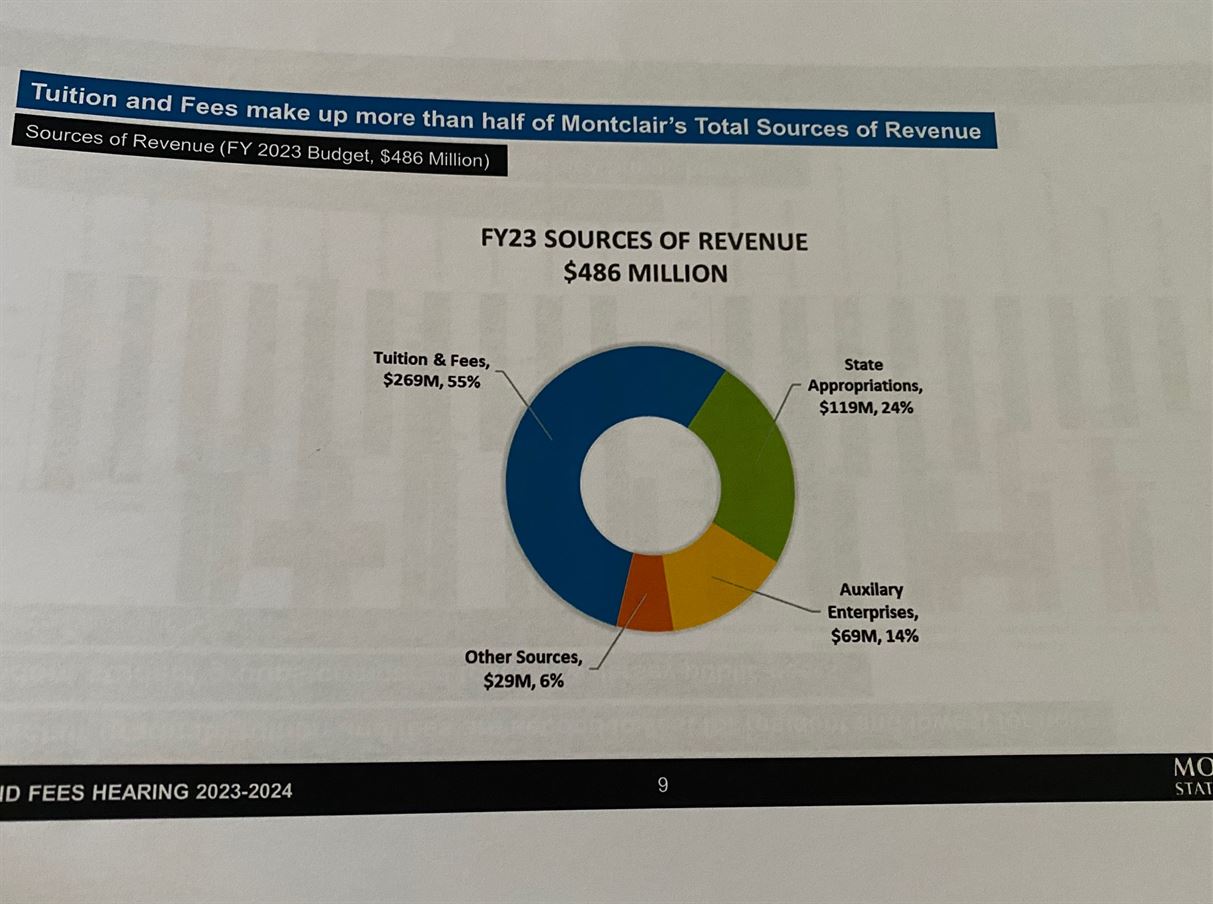
The university received $269 million in revenue from tuition and fees.
Kamil Santana | The Montclarion
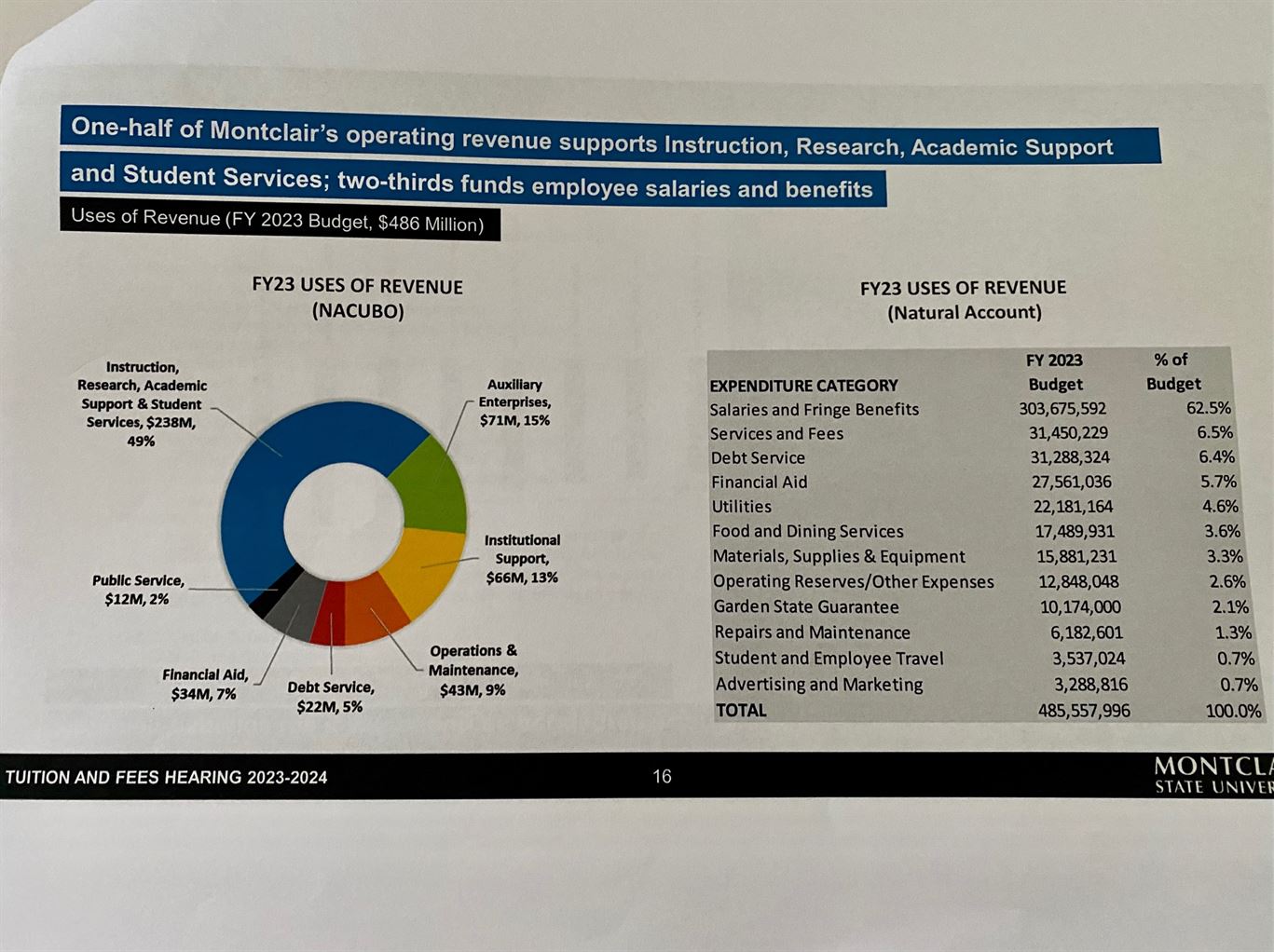
A large portion of the tuition and fees paid by students go back to instruction, academic support, student support and more.
Kamil Santana | The Montclarion
Students at Montclair State are underfunded. When it comes to state funding, they get nearly half of what other New Jersey universities receive. The university receives 6.9% of base appropriations from the state.
“A significant part of my job is to help underscore with the legislature the huge disparities in how higher education is funded,” Koppell said. “There is no formula. The biggest chunk of funds comes in a base appropriation. That is the number that’s simply determined by the legislature.”
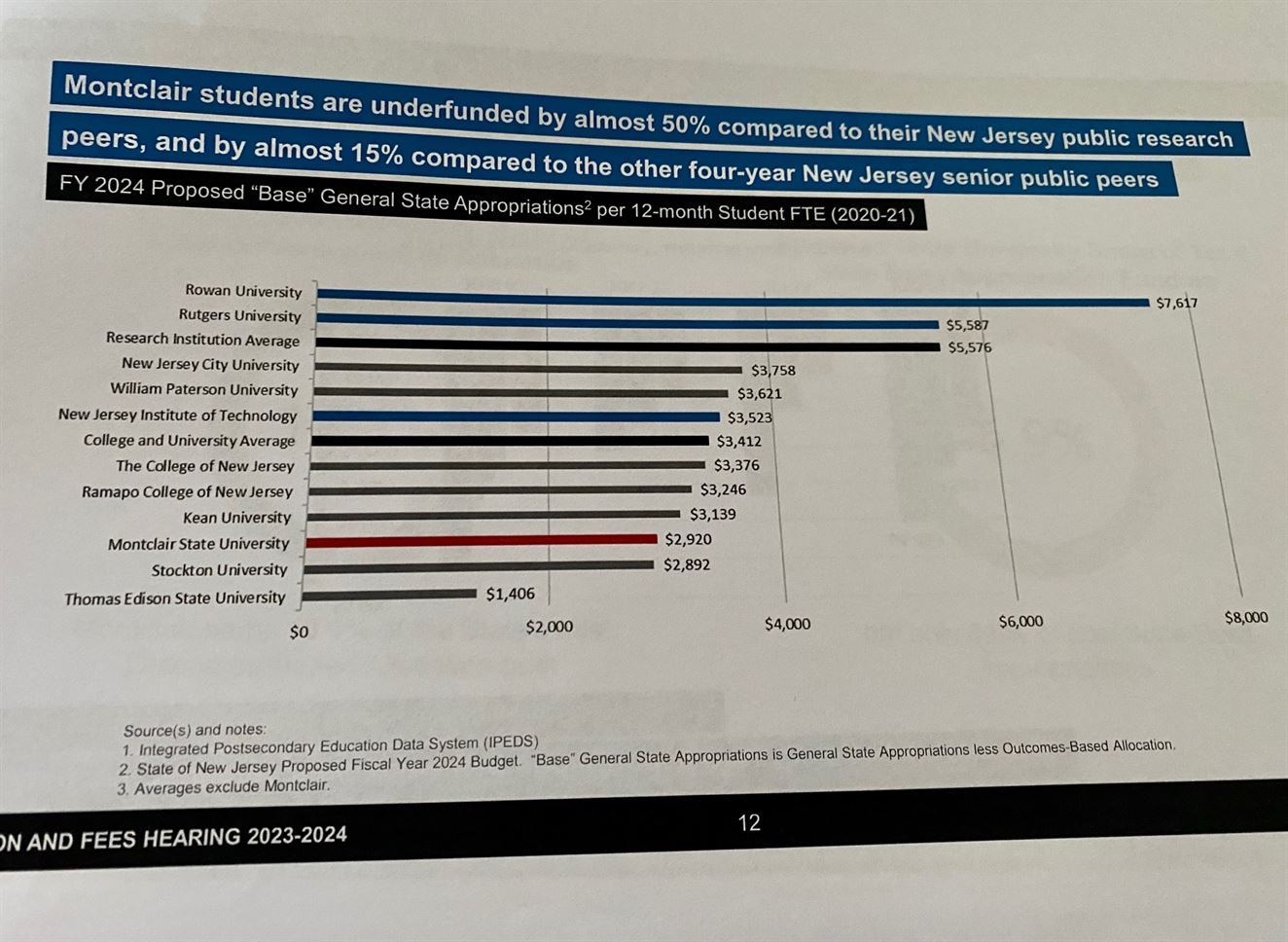
Montclair State students receive about half the amount of funding in comparison to Rowan University.
Kamil Santana | The Montclarion
The institution would not be able to stay afloat without tuition and fees. Koppell acknowledges this.
“Notwithstanding the fact that we are a state institution and notwithstanding the fact that the state makes a substantial investment in this university, we live and die based on our ability to attract students and based on the revenue associated with tuition and fees,” Koppell said.
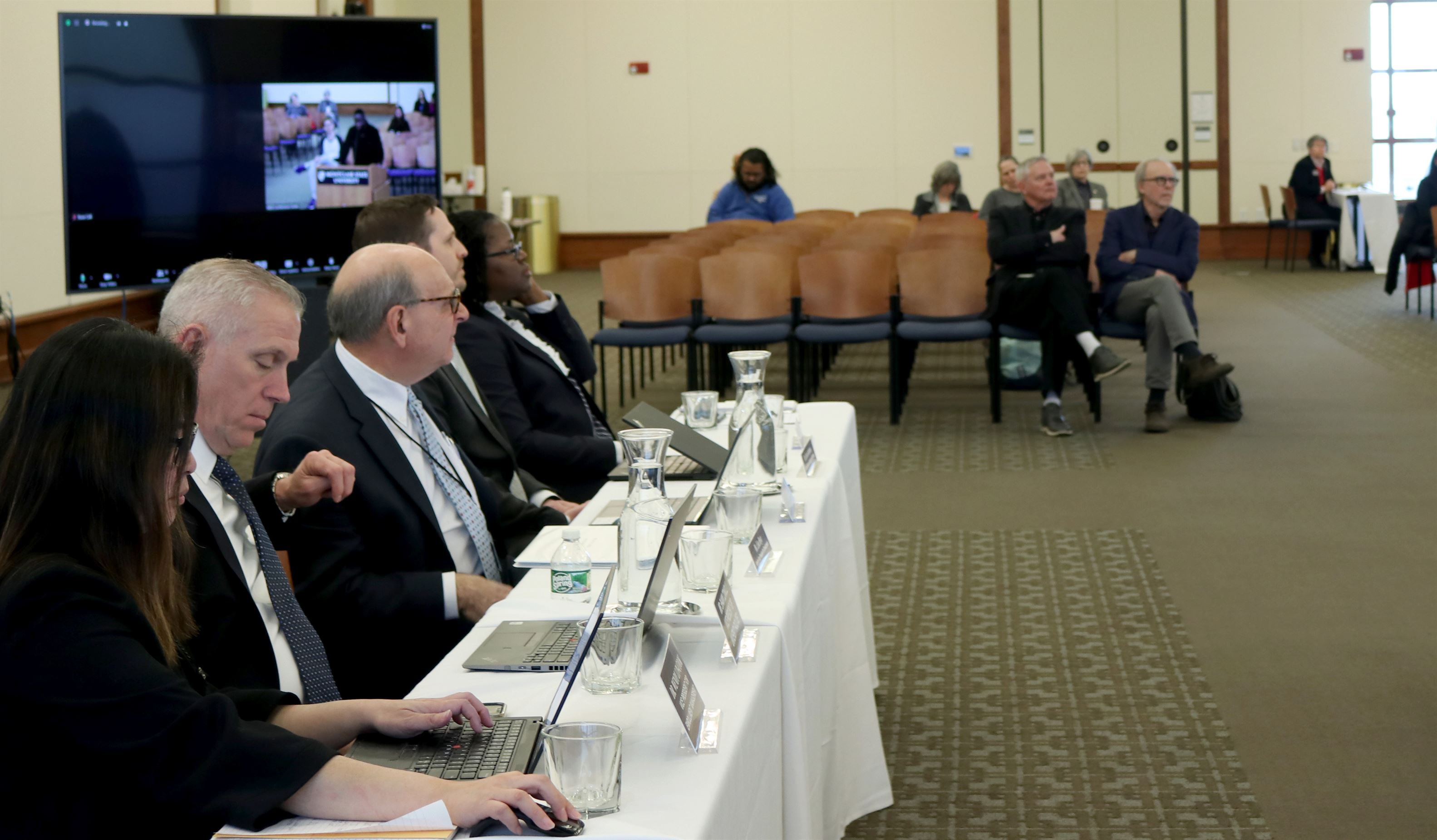
The Board of Trustees listens in on a student's concerns.
Kamil Santana | The Montclarion
Koppell said that although the university is operating on a tight budget, it will continue broadening opportunities for students.
“What I can tell you is we will not retrench. We cannot be less ambitious because we are facing a tight budget,” Koppell said. “We cannot stop innovating because we’re facing a tight budget, because those investments, those innovations, those attempts to be nimble and progressive is what puts us in a position to be successful in the future.”
James Olatunji spoke at the tuition hearing. Olatunji is a senior computer science major.
This is his second year speaking to the Board of Trustees about tuition. He said he was there for those who want to have their voice heard.
“I really don’t regret coming here today because I’m graduating and I thought, ‘Is it still my business to advocate for students at Montclair [State]?’ But because of what Montclair State is helping me achieve, I thought it’s only fair that I use my voice to speak on behalf of almost 23,000,” Olatunji said.
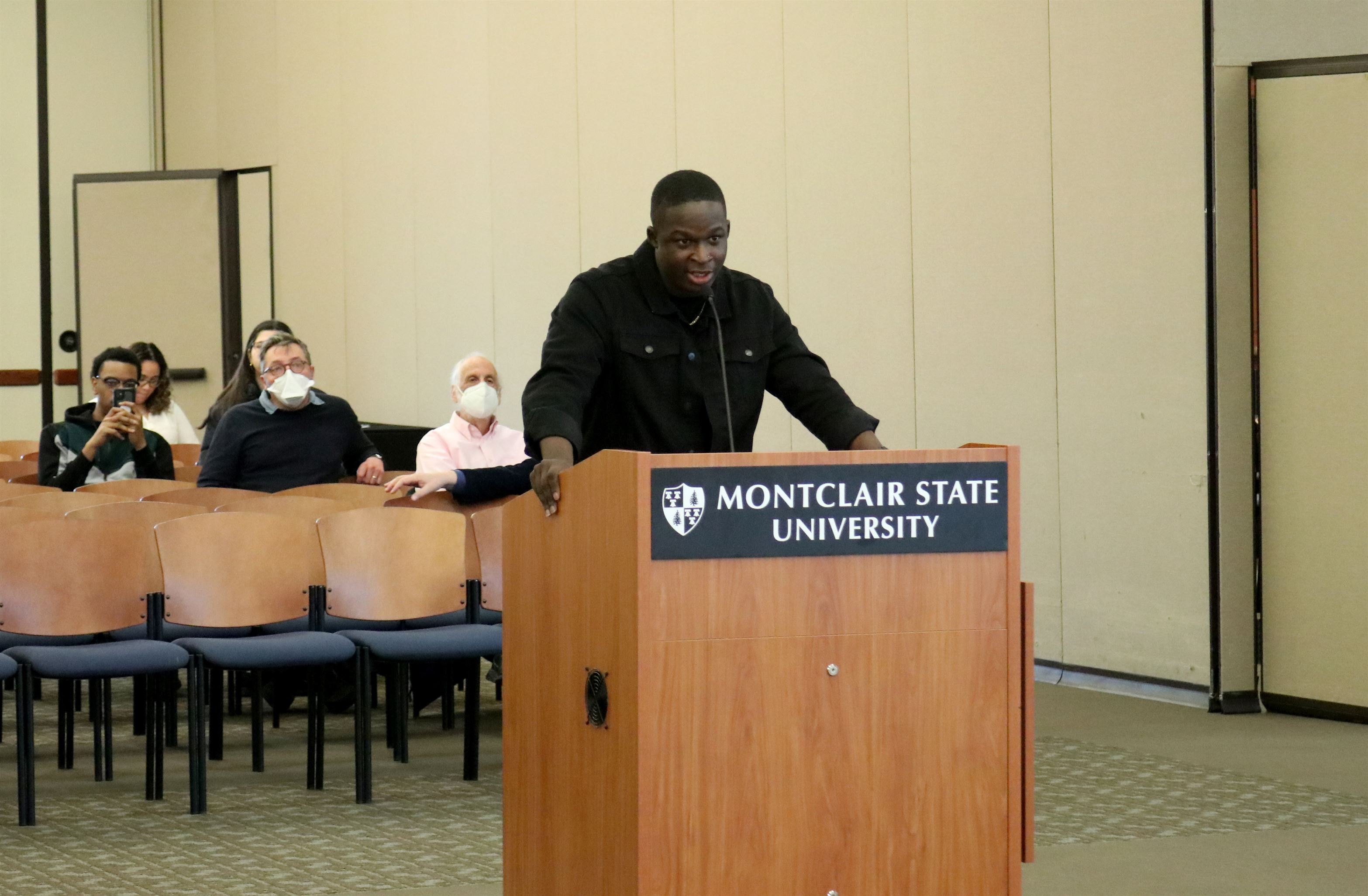
James Olatunji hopes tuition won't increase greatly. He thinks the state does not fund Montclair State sufficiently.
Kamil Santana | The Montclarion
Olatunji said he has a friend who also attends the university and struggles to work and keep up with tuition payments.
“He works full time at night to pay for his tuition here. He doesn’t have insurance. He has to work every day,” Olatunji said. “The state is not giving us [an] increase for somebody like [him] who’s working two jobs to be able to pay for his tuition.”
He hopes the state will help students with more funding.
“I don’t think it’s fair,” Olatunji said. “And the school is charging a very low price but the state is not doing their own fair share to serve the minorities of Montclair State.”
Olatunji called out the state for not contributing more to Montclair State. He said this is a great institution for the education and college experience and this is something he wants to see live on.
“We need more funding, and we need it now, really. We cannot advocate enough for this,” Olatunji said. “We are your future leaders of tomorrow. We do not want to break the dreams and the drive of students who are willing to go the long way to break the chain and curses of their families to get a degree. We don’t want to do that. We want to give them all of the resources so when they get that, they will not forget where they [came] from.”
Shaena Kate is a senior dance major. Kate was a student affected by the flooding in Williams Hall this past December. She isn’t on board with a tuition increase and feels more funding should be allocated toward residents on campus and mental health resources for students.
“The flood at Williams [Hall], we got zero mental health support for that,” Kate said. “No one even mentioned the idea of ‘Hey, if you need someone to talk to, here’s a resource.’ None of that. Losing your housing is an incredibly stressful situation. We’re moving to college. Most of our belongings are here and then [we found] out when we’re home that all of it might be destroyed but they didn’t tell us any information.”
Kate is an out-of-state student. She said living here is already expensive enough.
“I think also the other problem is if you’re raising out-of-state tuition for students, the out-of-state students have to live here, so they’re already paying double to be here. They don’t really have the option to commute,” Kate said. “So it’s already kind of pricey. It’s insane. Out-of-state [tuition] is already expensive.”
Madison Pasquin, a senior dance major, feels the tuition should not increase. Pasquin says a majority of students just don’t have the money.
“It stinks that the only way of trying to get money [toward] the school is cashing out the already broke college students,” Pasquin said. “We’re poor either way.”
Pasquin thinks funds should go toward meals that accommodate dietary restrictions.
“I used to have a dietary restriction because I had celiac disease,” Pasquin said. “And although the people that worked in the kitchens in Sam’s Place tried to help me, they just didn’t have the option to feed me. I couldn’t eat because I was afraid of making myself sick and stuff. I spent like the entire year fighting because they were forcing me to pay for a meal plan where I couldn’t eat anything.”

(L-R) Madison Pasquin, Marcia Testino and Shaena Kate all shared a disdain for the possible tuition increase.
Kamil Santana | The Montclarion
Marcia Testino, a senior dance major, is also advocating for better mental health services as students are only allowed a certain amount of therapy sessions across all four years of attending the university.
“You get six sessions and then they refer you out,” Testino said. “Most places don’t take out-of-state insurance, so you have school insurance. It’s a whole mess.”

